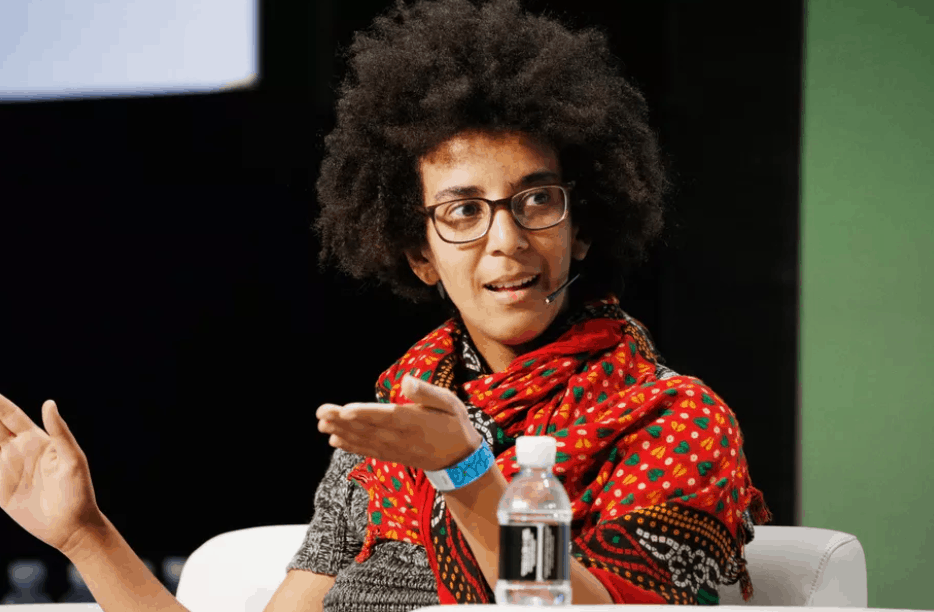Timnit Gebru, one of Google’s top artificial intelligence researchers, says the company abruptly fired her yesterday. The technical co-lead of Google’s Ethical Artificial Intelligence Team claims managers were upset about an email she’d sent to colleagues.
The email, which was sent to the Brain Women and Allies listserv, voiced frustration that managers were trying to get Gebru to retract a research paper. The full text was first published in Platformer. “A week before you go out on vacation, you see a meeting pop up at 4:30pm PST on your calendar,” it reads. “Then in that meeting your manager’s manager tells you ‘it has been decided’ that you need to retract this paper by next week… You are not worth having any conversations about this, since you are not someone whose humanity (let alone expertise recognized by journalists, governments, scientists, civic organizations such as the electronic frontiers foundation etc) is acknowledged or valued in this company.”
After the email went out, Gebru told managers that certain conditions had to be met in order for her to stay at the company. Otherwise, she would have to work on a transition plan.
Megan Kacholia, vice president of engineering at Google Research, said she could not meet the conditions and accepted Gebru’s resignation as a result, according to OneZero. Kacholia added, “However, we believe the end of your employment should happen faster than your email reflects because certain aspects of the email you sent last night to non-management employees in the brain group reflect behavior that is inconsistent with the expectations of a Google manager,” according to Gebru. On Twitter, she claimed the decision to fire her ultimately came from Google’s head of AI, Jeff Dean.
Dean sent an email to Google staff Thursday morning explaining his view Gebru’s departure, which was first obtained and published by Platformer.
“Timnit co-authored a paper with four fellow Googlers as well as some external collaborators that needed to go through our review process (as is the case with all externally submitted papers),” the email reads. “Unfortunately, this particular paper was only shared with a day’s notice before its deadline — we require two weeks for this sort of review — and then instead of awaiting reviewer feedback, it was approved for submission and submitted. A cross functional team then reviewed the paper as part of our regular process and the authors were informed that it didn’t meet our bar for publication and were given feedback about why…We acknowledge that the authors were extremely disappointed with the decision that Megan and I ultimately made, especially as they’d already submitted the paper.”
The Google Walkout Twitter account, which is run by current and former employees, came out in force for Gebru. “Dr. Gebru is a pathbreaking scientist doing some of the most important work to ensure just and accountable AI and to create a welcoming and diverse AI research field,” they wrote.
Gebru is famous for her work on algorithmic bias, particularly in facial recognition technology. In 2018, she co-authored a paper with Joy Buolamwini showing error rates for identifying darker-skinned people were far higher than the error rates for identifying white-skinned people, in part because the datasets used to train algorithms were overwhelmingly white.
News of Gebru’s alleged firing swept through Twitter yesterday, prompting an outpouring of support from colleagues and collaborators. “I have your back as you have always had mine,” Buolamwini tweeted. “You are brilliant and respected. You listen to those others readily ignore. You ask hard questions not to advance yourself but to uplift the communities we owe our foundations. I am proud to call you leader mentor friend sister.”
Hours earlier, news broke about the National Labor Relations Board filing a complaint against Google for firing two workers last year in the wake of employee organizing efforts. At the time, Google said the employees, Laurence Berland and Kathryn Spiers, had violated security policies and internal systems. But the NLRB found these rules violated labor laws and alleged Berland and Spiers had done nothing wrong.

